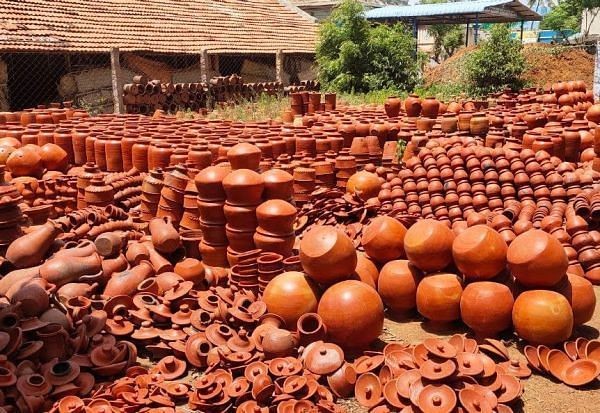Manamadurai pottery has just been designated as a Geographical Indication (GI).

Manamadurai Pottery
- The clay used in Manamadurai pottery is enriched by the Vaigai river. Making pots demands skill since the bottom must be exactly round.
- This product is exceptionally sturdy because to the proper proportion of mud, clay, and heating. Soil and water are the primary raw materials used to create these pots.
- The sand is collected from various locations in the district and cured for two days before being used to make ceramics. Sieving is used to separate the mud particles.
- To improve the quality, the slurry is combined with the sand, and lead and graphite are added to the combination.
- This mixture now has a high concentration of calcium lime, ash, red lead, sodium silicate, manganese, iron, and plasticizing. The container is also painted in various colours.
What makes these pots unique?
- To produce these pots, a specific sort of clay is acquired from water sources like as Nedunkulam, Nathapurakki, Sundaranadappu, and Seikalathur.
- The five natural elements of earth, water, fire, sun, and air are employed to create these pots.
- Mud, which represents the soil, is the base material for pottery. Mud is combined with water, another natural ingredient.
- Following that, the third element is baked in fire.
- The fourth element is air, which percolates via the pores in the clay.
- Finally, the space represented by the hollow surrounded by the pot or other connected product.
Source: https://www.thehindu.com/news/national/tamil-nadu/manamadurai-pottery-gets-gi-tag/article66773064.ece#:~:text=A%20video%20on%20Manamadurai%20pottery,earned%20a%20Geographical%20Indication%20tag.&text=These%20pots%20have%20put%20this,Geographical%20Indication%20(GI)%20tag.
